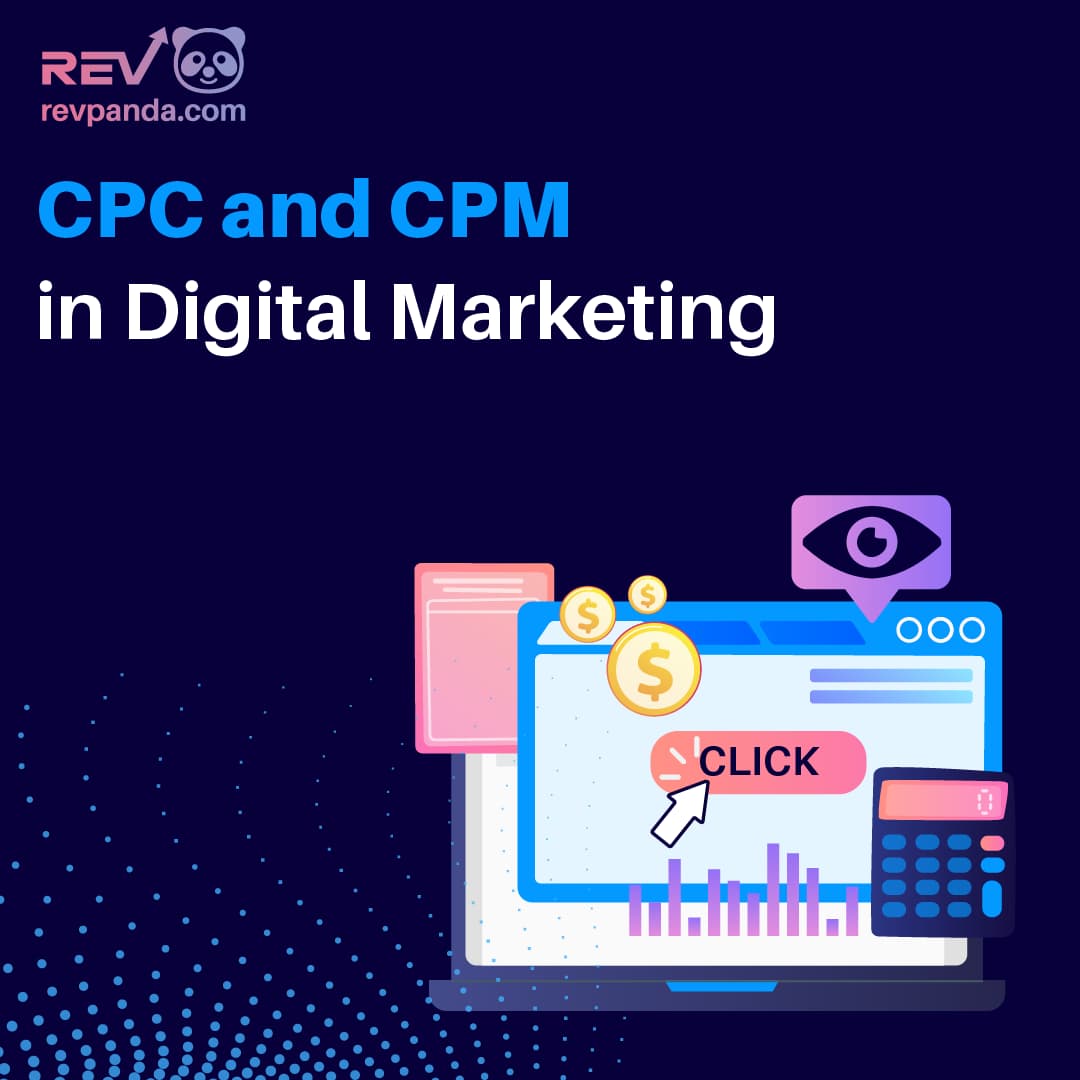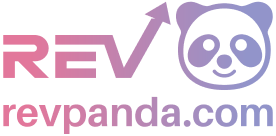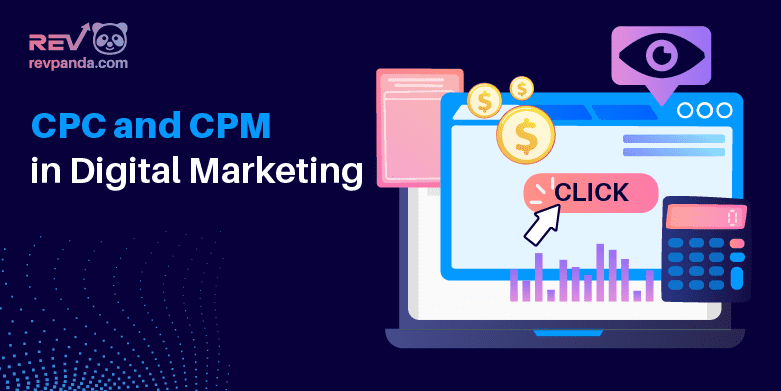
BLOG
What is CPC and CPM in Digital Marketing?
Table of contents
Click on a title to jump to a section
Regardless of the platform, you use, either social media or search engine platforms, CPC and CPM are handy acronyms that can help you improve your online revenue.
What is CPC?
As one of the most critical terminologies of PPC marketing, CPC is the abbreviation of “cost per click”. It stands for the amount you are supposed to pay per each click you get on your ads. In other words, it is the answer to how much it costs you to acquire a click on a platform.
How to Calculate the Average CPC?
You may wonder what determines the price. At that point, several aspects are affecting the cost. Let’s say you receive 3 clicks on your ad, while one of them costs €5, the other two costs €7 each. In this case, your average cost per click is €6,33.
What is CPM?
Unlike CPC, CPM means “cost per thousand”. Here, the letter M could be confusing, but it stands for thousand in Roman numbers. Another difference of CPM is, it focuses on the number of impressions rather than clicks.
How does CPM work?
In CPM, you attend an auction and bid for your ad to appear on the page. Here, the amount of money can be described as the cost you are willing to pay. For example, you can bid €20 for your business to appear thousand times on every page containing relevant keywords. Meanwhile, your competitor bids €7. As a result, your bid is closer to winning the auction.
However, money can’t buy everything. You cannot get the first-class seat by offering the highest amount. Fortunately, no. Otherwise, regardless of the quality of their product and service, the ones that pay the most would be the one that appears on the page.
There are several key determinants that can help you win the auction by paying less. Some of them are:
- The quality of your landing page,
- The relevance of your ad.
For example, let’s say you and your competitor want to get impressions on the “coffee shop” keyword. While you are willing to pay €10 for a thousand view, your competitor is ready to pay €13. Meanwhile, your page is the verified official page of your local coffee shop, but your competitor’s is a bakery. At this point, you have a higher chance to win the auction since your bid is more relevant to the term.


